“Willpower is like a muscle: The more you train it, the stronger it gets.”
Will is like self-control and wisdom. We depend on willpower to quit alcohol consumption, avoid too much eating, save money, overcome procrastination, time management, and achieve our goals. It impacts our daily lives. Strength of will is a guard of the mind and discipline of the soul.
Related post: 100 Strong Willpower Affirmations (Victory Starts Within)
Table of Contents
- What is willpower
- Definition and meaning of willpower
- Why willpower is essential
- How does Willpower work
- 3 Types of willpower
- Lack of Willpower examples
- Tips to develop willpower
- Can Willpower overcome addiction?
- 7 Must-Read Books on Willpower for Personal Transformation
- Inspirational Quotes to Strengthen Your Willpower
- Conclusion
What is Willpower?
Will is our inner power, and the inner world can not be affected by the outside world. It is our trump card. Placed in some unchangeable and undeniably negative situation, we can turn it into a learning experience. It needs to be cultivated. true will is quiet humility, resilience, and flexibility. It can also require determination and the ability to take action.
Studies have covered that people scoring high on self-control are more able to regulate behavioral, emotional, and attention impulses to achieve long-term goals when compared to more passionate individuals.
Students who rank high on self-discipline have good grades, better school attendance, and well-standardized test scores, and are more likely to be admitted to a competitive high school program. Self-discipline is more important than IQ in academic success.
Definition and meaning of willpower

Fixity of purpose can be defined as the ability to control your thoughts and how you behave. It means making conscious decisions and self-discipline to design personal goals, values, or intentions, even when faced with strong emotions.
Will convince people to avoid immediate gratification, overcome distractions, and maintain focus on long-term goals.
Capability to consciously suppress or ignore unwanted thoughts, emotions, or impulses that may obstruct progress or distract from desired objectives.
“Cool” cognitive system Keep calm and relaxed in situations that cause anger or frustration. Prevent from indulging in unhealthy food when on a diet.
Why Willpower is Essential?
Many people are aware of the importance of resolution, but, studies will run through the search for more studies on it.
Wherever you look at it, people with better willpower are:
- Prepare for a difficult time
- Healthier
- More satisfied in their lives
- Wealthier and further ahead of their goals
- More able to manage stress, expectations
- Buil your positive mindset
It is a powerful friend because it allows you to act on behalf of your deepest values and beliefs.
The presence of determination is important for achieving success and overcoming challenges. Without it, goals and aspirations may remain unfulfilled, you may also have feelings of anxiety, stress, anger, or depression.
It gives clarity and purpose when you set a goal, In both personal and professional. It builds thoughtful thinking, planning, and action. For success, willpower inspires you for genuine desire instead of wishful thinking.
The significance of determination extends to following through to the end. It equips you with the necessary preparation, confidence, and discipline to stick even when faced with challenges.
Motivation finds its roots in willpower, to make positive changes in your lives. It is a catalyst for progress, as taking action is the first step toward achieving desired outcomes. After all, “Nothing happens until you move toward it.”
It can also defeat laziness and procrastination and get moving you to take action. While we are all born with some degree of will, and use it for some expansion. But lots of us would be very near to achieving all our goals if we exercised it perfectly.
How does Willpower work?

Almost everybody in the world uses willpower but does not know it properly. The common perception that willpower is an unlimited resource and that lack of will is the only cause of various challenges, such as being overweight, bad addiction, or laziness is an oversimplification of complex situations. But is it really that simple?
Many studies have found that our strength of will is finite in nature. It operates as a limited resource that can become depleted over time. Like a muscle, it can be fatigued with use and requires rest to refresh. This depletion of willpower is known as ego depletion and can cause to decrease in self-control and decision-making abilities.
It is like fuel in a car’s gas tank. The more we utilize it, the less we have available until we refill it. This discovery holds significant importance as it challenges the notion that willpower is always easily accessible whenever we need it. The finite nature of will and self-control prompts us to treat them differently from an unlimited resource.
Neuroscience tells us that the prefrontal cortex is part of the brain, located just behind our forehead–controls what we do including attention, decision-making, and emotion regulation. It consists of multiple interconnected areas that contribute to different aspects of our choices and actions. This influences our thoughts and regulates our emotional experiences (McGonigal, 2013).
When we engage in activities that require single-mindedness, our brains consume glucose, a form of sugar that serves as a primary energy source for the brain. Complex carbohydrates, such as brown rice, potatoes, beans, and other whole grains, release energy gradually throughout the day, helping to maintain stable glucose levels and support our strength. Relying on a balanced diet rich in complex carbs and other nutrients is key to maintaining overall brain health and optimal willpower levels.
This is why it is very important to acquire good habits and routines. We use our willpower to create good habits, and after that habits create us.
3 Types of willpower
There are three types of willpower, which activate different brain areas (McGonigal).
I Will – The left side of the brain is responsible for helping us stick to tasks, including boring ones. we can use it to accomplish challenging tasks and pursue our goals. Such as maintaining a regular workout routine, and keeping our homes clean.
I Won’t – Although the right side of the brain stops us from the various temptations in our lives. We rely on willpower when we resist late-night cravings for candy and watching TV. It is mental strength that helps us to overcome short-term desires, delay gratification, and make decisions that serve our best interests in the long run.
I Want – In the prefrontal cortex, specifically in the medial and lower regions, neuronal activity helps us maintain motivation, and stay on track with our goals. This is the most important part of the willpower muscle.
Lack of Willpower examples

Lack of willpower can impact various situations and behaviors. Here are some examples of how a lack of willpower can affect different areas of our lives:
Procrastination- People who lack willpower may feel difficulty doing tasks, and are willing to procrastinate. This can result in decreased productivity, and missed deadlines. It involves giving in to short-term gratification instead of working on important tasks. Many American reports found that lack of willpower is a significant barrier to achieving their goals (APA).
Unhealthy eating habits- Will can contribute to difficulties in maintaining a healthy diet. It causes them to indulge in unhealthy food choices, overeat, or struggle to resist cravings for sugary or high-calorie foods and difficulties in achieving health-related goals.
Ignore exercise routine- Many people find it difficult to establish and maintain a regular exercise routine. They may overcome the temptation to skip workouts or be consistent with physical activity.
Spending too much- Financial decisions, whether they involve paying the mortgage, buying groceries, or saving money, require significant mental effort (APA). The firmness of purpose to resist impulsive purchases, prioritize needs over wants, and stick to a financial plan.
Difficulty to maintain relationships- Effective communication is important in healthy relationships. Without willpower may struggle to express their needs, and feelings, or discuss them openly and honestly. Act without thinking about the consequences, make judgments, or engage in reckless behavior that affects your relationship.
Tips to develop willpower
In 2011, 27% of the participants of the Stress in America survey reported that lack of willpower was the greatest barrier to change. Through, many tests researchers discovered that with the right practice, willpower can be developed just like a muscle. Here are some tips:
1. Strengthen your self-awareness
Self-awareness is the power to recognize what we are doing. Our thought processes, emotions, and reasons for acting are an essential part of making better choices. One thing you can do to improve your self-awareness is to keep the mark of all your choices in a day. At the end of the day examine which ones supported your long-term goals and which ones didn’t.
2. Use imagination power
Visualization is a powerful technique for increasing willpower. Imagine the outcome you want to achieve and then put your will into the same. for ex. see yourself as lovable, energetic attractive, and happy. Imagine being as fit as you want to be. Keep these images in your mind continuously.
Keep negativity aside, think positive, and imagine yourself achieving what you have set goals in your life.
3. Visualize images of your realistic goals
A study found that viewing visual intimations of your goals in your environment can potentially boost willpower. If your goal is not something touchable, you can still utilize visual supports by using images of rewards with your goal. For example, your goal is to maintain how to look young by adopting a regular exercise routine. You could find images that represent physical fitness, such as pictures of athletes or a fit and healthy version of yourself. Place these images in a visible location.
Whenever you feel like skipping a workout, these visual reminders can help reignite your motivation. Visualizing the benefits of staying active and making it easier to stick to your exercise routine. This visualization technique may serve as a powerful reminder of the benefits that await you once you achieve your goal.
4. Change your environment

Environment is more important than anything, It has a significant impact on our behavior and our life, even though we realize it or not. The people we surround ourselves with, the news we hear, societal norms, and our home environment have a great influence on our willpower.
We can consciously reorganize our environment to prioritize the areas we want to focus on and eliminate elements that distract us, we create an environment that supports our concentration and makes us a positive person.
5. Simplify decision-making
Have you ever thought just how many decisions you make in a day? From simple choices to complex decisions, our daily lives are filled with countless decision-making moments. This constant decision-making can drain our willpower reserves.
One effective approach is to create habits for certain activities. At the start of each day, make a to-do list and prioritize your tasks. Spend a few hours on the weekend to prepare and portion out healthy meals for the entire week. This way, you won’t have an excuse for not eating healthy because your meals are ready to eat.
By consciously reducing decision fatigue and automating routine tasks, you can free up mental space and willpower for the decisions that matter most.
6. Get adequate sleep
Sufficient sleep improves self-control and creates an optimal environment for the brain to function. During sleep, our brain undergoes crucial processes such as memory consolidation, and the body’s demand for glucose decreases. It is generally recommended that 7 to 8 hours of sleep per night is needed for our brain to make its repair and remove waste thoughts letting new blood in.
7. Meditate
Exercising mindfulness meditation for a few minutes every day can enhance your willpower by escalating gray matter in areas of the brain that manage emotions and govern decision-making. Paying observation to what’s happening at the moment, what’s going on in your body, your mind, and all around you, can make it easier to notice you make several hundred times a day. By meditating you are training the brain to focus and combat the urge to wander.
8. Try to eat better
It is not only about willpower, but it also provides more energy to your body, increases productivity, maintains weight, and improves your health. Avoid unhealthy diets and eat a nutritious diet that includes whole grains, vegetables, fruits, dark chocolates, and protein sources such as chicken and fish. When you feel hungry eat a healthy snack, it will help to maintain energy levels.
9. Develop good habits
When people are tense, they are willing towards ingrained habits — whether those habits are beneficial or harmful. Fortunately for us, knowledge is power. you’ll control your cravings for sugar or alcohol. Even if we start with some small good habits, like making our beds, this can have a powerful, positive effect on our willpower. These small habits build self-discipline and self-control, and have a good impact on other areas of our life.
10. Reward yourself
If you congratulate yourself in advance, it can increase your motivation and willpower to follow through. Our brain is naturally wired to seek positive rewards, and leveraging this innate drive can help you stay motivated during the process of change.
Plan a short vacation after successfully achieving a specific financial goal. Take a day off from work after successfully accomplishing a professional goal.
11. Relax

IN 2010, the American Psychological Association found that 75% of people in the United States report high levels of stress. Americans are also increasingly sleep-deprived, causing bad self-control and focus.
It is not possible to exercise self-control all the time. Take a break from time to time, reading, listening to music, watching TV, Spending time with loved ones, going out for walks, and after that get back to your goals as you are learning how to improve willpower.
If you do this, you feel refreshed, and you’ll have better will to produce better work.
Can willpower overcome addiction?
Philosophers often say that Willpower can be effective in small behavior changes, but it’s generally less important to overcome chemically addictive substances like drugs and alcohol. The insidious nature of addiction makes it extremely challenging to rely only on willpower. These substances hijack the brain’s natural reward pathways, creating a powerful drive to seek and use them, often overriding rational thinking and decision-making abilities. It requires professional treatment, therapy, support groups, and lifestyle changes.
Medication-assisted treatment (MAT) can be helpful to manage cravings and provide a comprehensive approach to addiction treatment.
7 Must-Read Books on Willpower for Personal Transformation
1. The Willpower Instinct: How Self-Control Works, Why It Matters, and What You Can Do to Get More of It
Author – Kelly McGonigal, Ph.d.
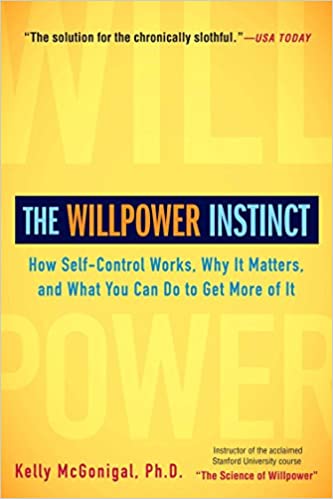
2. Willpower: Rediscovering the Greatest Human Strength
Author – Roy F. Baumeister & John Tierney
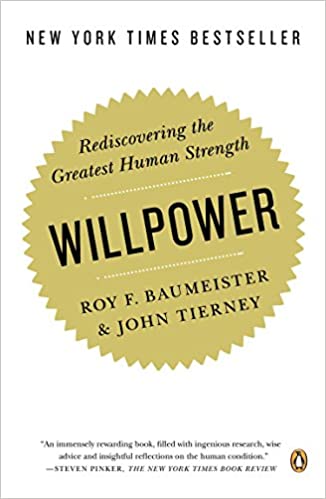
3. The Power Of Focus
Author – Jack Canfield
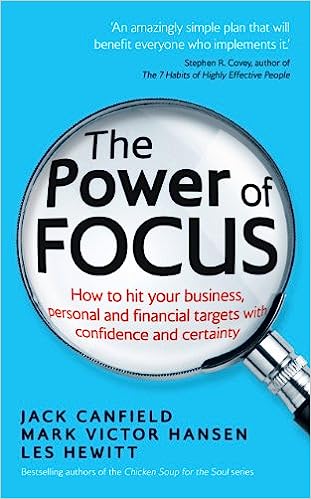
4. The One Thing: The Surprisingly Simple Truth About Extraordinary Results
Author – Gary Keller, Jay Papasan

5. Learn Better: Mastering the Skills for Success in Life, Business, and School, or How to Become an Expert in Just About Anything
Author – Ulrich Boser
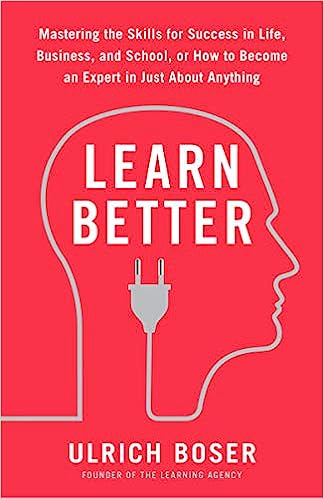
6. Mastery
Author – Robert Greene
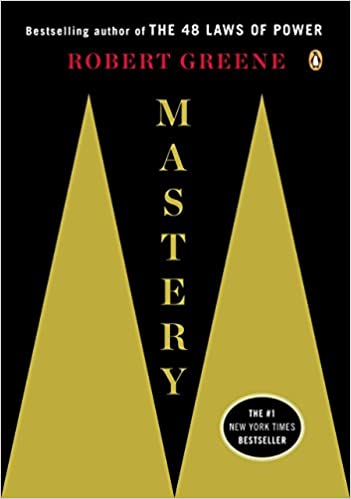
7. Atomic Habits: An Easy and Proven Way to Build Good Habits and Break Bad Ones
Author – James Clear
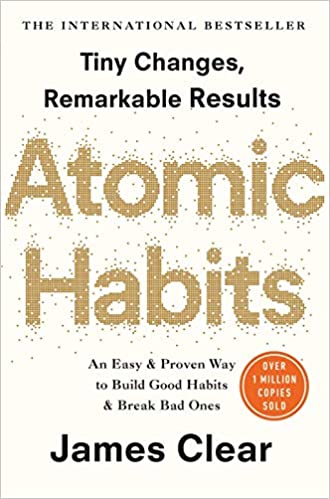
Inspirational Quotes to Strengthen Your Willpower
“Our Bodies are our gardens to which our wills are gardeners.” – William Shakespeare
“Obstacles are merely a call to strengthen your resolve to achieve your worthwhile goals.” – Tony Robbins
“Where the willingness is great, the difficulties cannot be great.” – Niccolo Machiavelli
“You are the only person on earth who can use your ability.” – Zig Ziglar
“Thoughts become things. If you see it in your mind, you will hold it in your hand.” – Bob Proctor
“Strength does not come from physical capacity. It comes from an indomitable will.” – Mahatma Gandhi
“When your desires are strong enough you will appear to possess superhuman powers to achieve.” Napoleon Hill
“What you have to do and the way you have to do it is incredibly simple. Whether you are willing to do it, that’s another matter.” – Peter F. Drucker
Conclusion
Willpower, mindset, and self-discipline are valuable qualities that can help us achieve our long-term goals. We can override unwanted thoughts, emotions, and impulses, giving clarity to make better decisions and deal effectively with difficult situations.
While there is some debate about the nature of willpower is limited but it can be strengthened and expanded through practice. Research suggests that people are more likely to stick to a task when they hold the belief that their strength of will is infinite.
By developing these abilities within ourselves, we can unlock our full potential and achieve the goals we aspire to.
Related articles
1. Mindset is Everything & 7 Tips to Develop a Growth Mindset
2. 13 Ways How to Look Young and Beautiful Naturally
3. Negotiation: 8 Simplest Ways Can Make You Successful
4. “Talent(Our Hidden Gem): The Ultimate 8 Ways to Find It”
5. 51 Amazing Patience Is a Virtue Quotes For Perfect Life
6. 120 Vision Board Affirmations: Dream Big, Achieve Bigger



